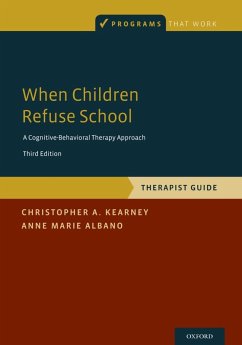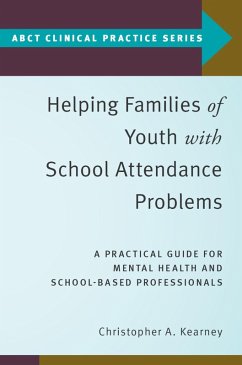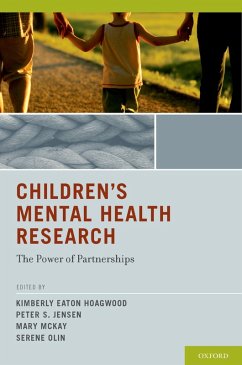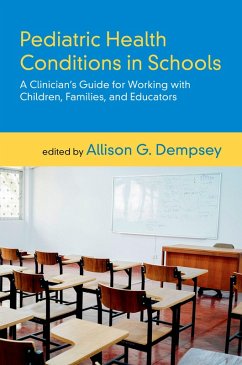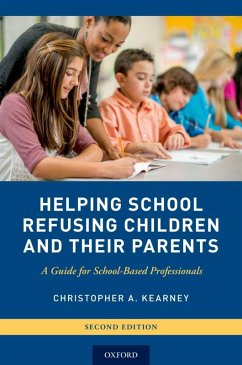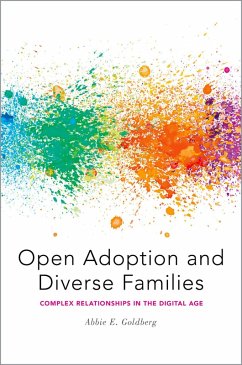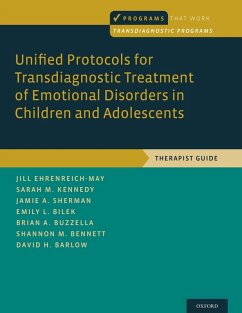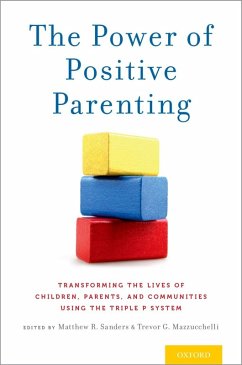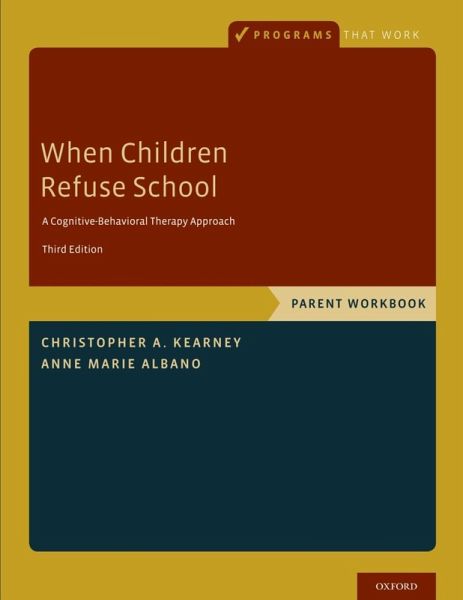
When Children Refuse School (eBook, ePUB)
Parent Workbook
Versandkostenfrei!
Sofort per Download lieferbar
22,95 €
inkl. MwSt.
Weitere Ausgaben:

PAYBACK Punkte
11 °P sammeln!
School refusal behavior is a common and difficult problem facing parents of children and teenagers. The behavior often results in severe academic, social, and psychological problems. A child's absence from school also significantly increases family conflict. If your child experiences anxiety or noncompliance about attending school and has trouble remaining in classes for an entire day, When Children Refuse School, Parent Workbook, and the corresponding Therapist Guide, can help. The third edition of When Children Refuse School, Parent Workbook, is designed to help you work with a qualified the...
School refusal behavior is a common and difficult problem facing parents of children and teenagers. The behavior often results in severe academic, social, and psychological problems. A child's absence from school also significantly increases family conflict. If your child experiences anxiety or noncompliance about attending school and has trouble remaining in classes for an entire day, When Children Refuse School, Parent Workbook, and the corresponding Therapist Guide, can help. The third edition of When Children Refuse School, Parent Workbook, is designed to help you work with a qualified therapist to resolve your child's school refusal behavior. This edition introduces parent involvement strategies, especially with respect to intervention compliance, and offers recommendations regarding consultation with school officials. Regardless of whether your child refuses school to relieve school-related distress, to avoid negative social situations at school, to receive attention from you or another family member, or to obtain tangible rewards outside of school, the flexible treatments described in this book will help you and your child overcome school refusal behavior. The Workbook describes what you can expect throughout the assessment and treatment of your child and provides answers to questions you may have about the process of therapy. It also provides instructions for continuing certain aspects of the program at home, including relaxation and breathing techniques, as well as exposure exercises to decrease your child's anxiety.
Dieser Download kann aus rechtlichen Gründen nur mit Rechnungsadresse in A, B, BG, CY, CZ, D, DK, EW, E, FIN, F, GR, HR, H, IRL, I, LT, L, LR, M, NL, PL, P, R, S, SLO, SK ausgeliefert werden.




